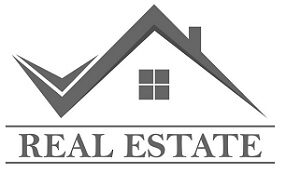Forest Hill, nestled in the London Borough of Lewisham, has steadily gained a reputation as one of South London’s most desirable areas. Known for its leafy streets, vibrant community, and excellent transport links, Forest Hill appeals to a diverse range of buyers. From young professionals seeking modern flats to growing families in search of spacious houses, the area offers something for everyone.
But when it comes to choosing between a flat or a house in Forest Hill, the decision can be complex. Each property type comes with its own set of advantages and challenges, making it essential for buyers to weigh their options carefully. Whether you’re looking for affordability, space, or long-term investment potential, understanding the differences between flats and houses can help you make an informed decision.
Affordability and Initial Investment
For many buyers, the starting price of a property plays a crucial role in the decision-making process.
Flats in Forest Hill are generally more affordable than houses, making them a popular choice for first-time buyers or young professionals. With the average price of a one- or two-bedroom flat significantly lower than that of a house, flats provide an accessible route onto the property ladder. Additionally, flats often come with modern fittings and require less immediate renovation, which can be appealing to those looking to move in without additional expenditure.
Moreover, flats in Forest Hill tend to be more energy-efficient due to shared walls and smaller living spaces, resulting in lower utility bills. This is a bonus for budget-conscious buyers who want to minimise ongoing expenses.
In contrast, houses in Forest Hill command a higher price, reflecting the added space and potential for future growth. Detached, semi-detached, and terraced houses offer more living space and often come with gardens, which add to their appeal. While the initial cost may be higher, houses tend to appreciate more over time, providing a better return on investment in the long run. For buyers who are thinking beyond immediate affordability and focusing on long-term value, a house may be the more strategic choice.
Space and Lifestyle Considerations
Space is often a deal-breaker when choosing between a flat and a house, especially for buyers considering their long-term needs.
Flats are ideal for those who prefer a compact, low-maintenance lifestyle. Most flats in Forest Hill offer open-plan living spaces that are modern and efficient, perfect for singles, couples, or small families. However, the downside is the lack of outdoor space. While some flats come with balconies or access to communal gardens, they cannot offer the privacy and freedom that comes with a private garden.
For buyers who value outdoor space, particularly families with young children or pets, houses are the clear winner. Houses in Forest Hill typically offer more room to grow, with additional bedrooms, larger kitchens, and private gardens. This extra space can make a huge difference for families who need room for play, storage, and even home offices. Furthermore, houses often come with lofts or basements that can be converted to provide even more living space, adding to their long-term value.
Flexibility and Potential for Customisation
Another key advantage of choosing a house in Forest Hill is the flexibility it offers for future modifications. Homeowners can extend, renovate, and personalise their space to suit their changing needs. Whether it’s adding an extra bedroom, converting a loft, or creating a home office, houses provide far more scope for customisation than flats.
Flats, by contrast, come with more restrictions. Leasehold agreements often limit the types of modifications that can be made, and gaining approval for significant changes can be a lengthy and complex process. This lack of flexibility can be a drawback for buyers who anticipate needing more space or wanting to make substantial changes to their living environment in the future.
Maintenance and Ongoing Costs
When it comes to ongoing costs, flats and houses come with their own sets of financial considerations.
Flats tend to have lower maintenance responsibilities for individual owners, as many aspects of upkeep are managed by a property management company. Service charges and ground rent, however, can add a considerable amount to monthly expenses. These fees cover everything from building maintenance and insurance to communal area cleaning and security. While this arrangement ensures that the property is well-maintained, the costs can escalate over time, particularly in newer developments with additional amenities.
Houses, on the other hand, come with greater autonomy but also increased responsibility. Homeowners are responsible for all maintenance, from roof repairs to garden upkeep. While this can be more time-consuming and costly, it also means that homeowners have complete control over their property without being tied to a management company. Over time, the ability to maintain and upgrade a house on one’s terms can add significant value.
Investment Potential and Long-Term Gains
Both flats and houses in Forest Hill offer solid investment potential, but they perform differently over time.
Flats are often a safer bet for buy-to-let investors. Their lower entry price and consistent demand from young professionals and couples make them attractive rental properties. Flats near Forest Hill station, with easy access to London Bridge and Shoreditch, are particularly popular among commuters. However, while flats offer reliable rental income, their capital appreciation tends to be slower than that of houses.
Houses, on the other hand, usually see stronger capital growth. Their scarcity in desirable areas like Forest Hill means that demand remains high, particularly among families looking for long-term homes. Additionally, houses offer more flexibility for upgrades and extensions, allowing owners to increase the property’s value over time. Freehold houses, unlike leasehold flats, also avoid the complications that come with managing a lease, making them a safer and more profitable long-term investment.
Seeking Expert Guidance During the Decision Process
When weighing the pros and cons of flats versus houses, consulting Forest Hill property agents can offer valuable insights. Experienced agents with a deep understanding of the local market can highlight emerging trends, pinpoint desirable areas, and advise on which property type is likely to meet your needs. Their knowledge of leasehold regulations, potential renovation opportunities, and rental yields can make a significant difference when deciding between a flat or a house.
Whether you’re a first-time buyer navigating the complexities of leaseholds or an investor seeking capital growth, local agents can provide tailored guidance. Their expertise can help you assess factors such as service charges, lease lengths, and long-term investment potential, ensuring that your decision is well-informed.
Leasehold vs. Freehold: Key Considerations
When weighing up flats and houses, it’s essential to consider the legal aspect of ownership.
Most flats in Forest Hill are sold as leasehold properties, meaning that buyers own the property for a fixed period but not the land it stands on. Leasehold properties often come with service charges, ground rent, and specific conditions that restrict certain modifications. Lease extensions can be costly, and the value of a flat can decrease if the lease term starts to run low.
Houses, however, are typically sold as freehold properties. This means that buyers own both the property and the land outright, giving them full control over their home. While maintaining a house involves more responsibility, the freedom that comes with freehold ownership often makes it a more appealing option for long-term buyers.
Community and Lifestyle in Forest Hill
The type of property you choose can also influence your lifestyle and sense of community.
Flats often foster a more communal atmosphere, particularly in modern developments where residents share amenities such as gardens, gyms, and social spaces. This can be a positive aspect for those new to the area, as it offers opportunities to connect with neighbours and build a sense of community. However, the close proximity of neighbours in flats can sometimes mean less privacy and more noise.
Houses, on the other hand, provide a quieter and more private living experience. Families and those seeking a peaceful environment often prefer houses, where they can enjoy their own outdoor space and maintain greater control over their surroundings. The residential streets of Forest Hill, lined with Victorian and Edwardian houses, offer a strong sense of community while still providing privacy and tranquillity.
The Verdict: Which Property Type is Winning?
The answer depends on your priorities, lifestyle, and long-term goals. Flats in Forest Hill are winning for buyers who value affordability, convenience, and low-maintenance living. They’re ideal for young professionals, couples, and investors looking for reliable rental income.
However, houses take the lead for buyers seeking space, flexibility, and long-term capital growth. Families and buyers who plan to stay in Forest Hill for many years often find that houses provide the best value, both in terms of living space and potential appreciation.




